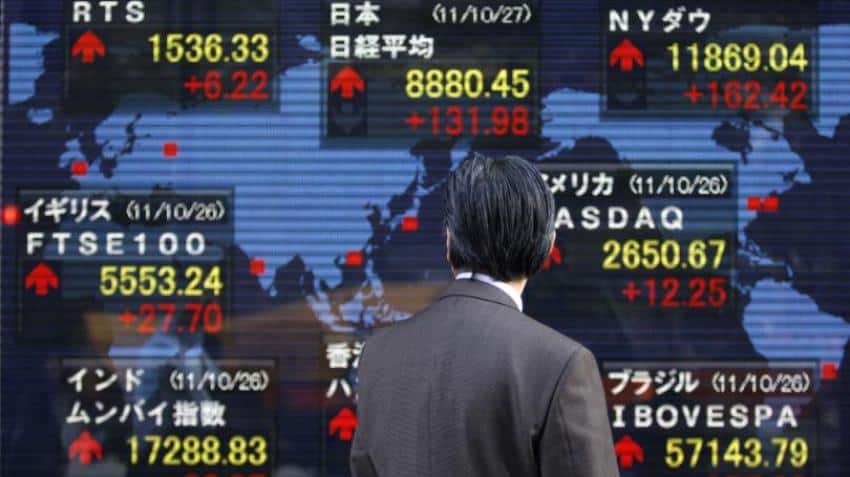
Most major markets in Asia traded lower on Tuesday, with Italian politics and the slide in oil prices in the spotlight.
Japan’s Nikkei 225 declined 0.64 percent, with strength in the yen weighing on major exporters. The yen traded at 109.07 to the dollar at 9:55 a.m. HK/SIN, compared to Monday’s close of 109.41.
Electronics stocks traded lower in the morning, as did steelmakers, with the broader Topix slipping 0.48 percent.
Over in South Korea, the Kospi edged down by 0.61 percent as gains in some technology names failed to lift the broader index. Banks and most manufacturing stocks saw declines.
Elsewhere, the Hang Seng Index slipped 0.37 percent, hurt by losses in the heavily weighted financials sector. Shares of insurer AIA, in particular, fell 1.44 percent. On the mainland, however, the Shanghai composite carved out a 0.12 percent gain.
Down Under, the S&P/ASX 200 tacked on 0.29 percent as large cap banks buoyed the market. Energy stocks which had been hit in the last session pared some overnight losses, with Woodside Petroleum edging up by 0.85 percent.
On the whole, MSCI’s broad index of shares in Asia Pacific excluding Japan traded lower by 0.25 percent in Asia morning trade.
Several markets in Southeast Asia, including Singapore, Malaysia and Thailand, were closed on Tuesday for a holiday.
Watching Italy
With U.S. and U.K. markets closed on Monday, investors kept an eye on Italy. Recent political turmoil in the country saw the FTSE MIB fall more than 2 percent in the last session.
The leader of Italy’s Five Star Movement party called for the country’s president, Sergio Mattarella, to be impeached after the latter chose to veto a pick for economy minister. Mattarella on Monday appointed a former International Monetary Fund economist to the role of interim prime minister, with snap elections expected.
“[I]t’s fairly light on the ground in terms of fundamental economic data releases today and so focus will continue to remain on the various geopolitical themes dominating market moves as we return to full liquidity conditions,” Nick Twidale, chief operating officer at Rakuten Securities Australia, said in a note.
The euro came under pressure on the back of that uncertainty, trading at $1.1619 at 9:45 a.m. HK/SIN after crossing the $1.17 handle in the last session.
Investors also digested geopolitical developments involving North Korea after delegations from the U.S. and the hermit state met on Sunday. That came despite U.S. President Donald Trump’s announcement last week that he was canceling a planned summit in June with North Korean leader Kim Jong Un.
The U.S. has readied sanctions on Pyongyang that could be unveiled soon, but was reportedly postponing the measures as the two countries attempted to resurrect talks.
Oil prices were mixed on Tuesday: U.S. crude futures were down 1.55 percent at $66.83 per barrel and Brent crude futures edged higher by 0.28 percent to trade at $75.51. Prices had dropped on Monday after top producers Saudi Arabia and Russia last week signaled they could raise production.
In individual movers, LG Display jumped 5.23 percent while Japan Display tumbled 10.87 percent in the morning. The divergent moves came after a report from South Korean newspaper Electronic Times, citing anonymous sources, that Apple would use organic light-emitting diode screens for new iPhones in the new year, Reuters said.

